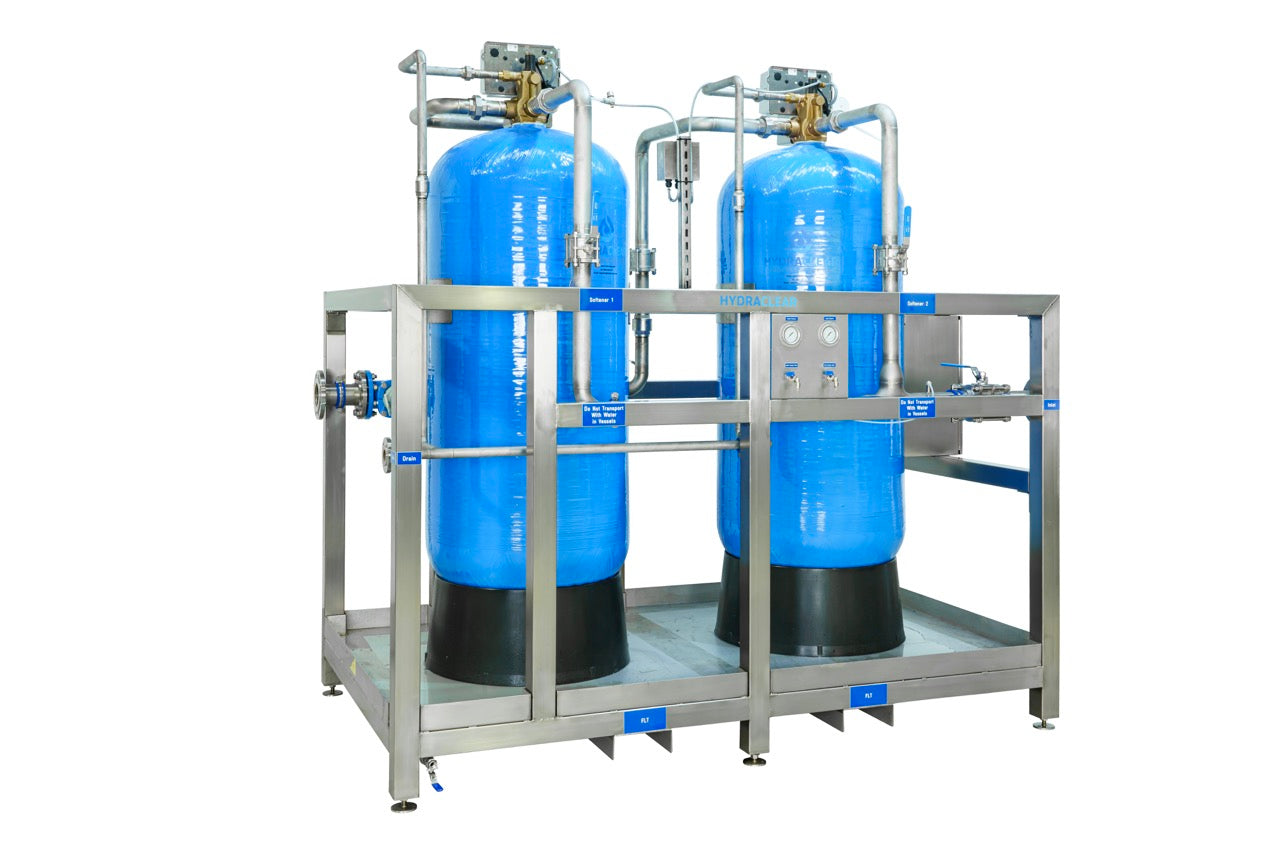Water is a valuable resource in the commercial and industrial worlds. However, water quality can have a significant impact on a variety of processes and equipment. Water containing high levels of minerals such as calcium and magnesium can be especially problematic. This article discusses the benefits of using industrial water softeners in commercial and industrial areas to solve hard water challenges.

What Are Industrial Water Softeners?
Industrial water softeners are specialised systems that purify water by removing minerals and impurities. Industrial water softeners are best used in industries where there is a lot of manufacturing and creation and a lot of water is required. They use ion exchange technology to soften the water by replacing calcium and magnesium ions with sodium ions.
The Impact of Hard Water in Commercial and Industries
Hard water can lead to various issues, affecting both equipment and operations.
Scale Development
Mineral deposits, or scale, can obstruct water flow in pipes and machinery, reducing efficiency and requiring costly repairs.
Cleaning Efficiency Has Dropped
Hard water reduces the effectiveness of detergents and cleaning agents, making it difficult to keep industrial facilities clean.
Corrosion of Industrial Equipment
Hard water's high mineral content can cause corrosion and wear on equipment, requiring frequent replacements and maintenance.
Benefits of Using Water Softeners in Industries and Commercial
Reduce Water Hardness
Both calcium and magnesium levels are higher in hard water. Water is softened to remove minerals that can harm human skin, hair, appliances, and pipes. Water softeners, in other words, reduce the amount of calcium and magnesium in water, thereby lowering its hardness.
Water Tastes Better
Hard water has a different salty and sour flavour. It also has a different smell that is not pleasant. Water softeners work by converting hard chemicals into soft ones. Water contains a chemical residue known as sodium bicarbonate after the process. Water's flavour becomes slightly sweeter, reducing the saltiness caused by sodium chloride. In addition, the foul odour diminishes.
Reduced Chemical Usage
Water softeners are designed to remove hardness from water. This is accomplished through the action of other chemicals present in the water softener, which neutralise the chemicals in hard water. Using water softeners means less detergent and cleaning agents are required for cleaning. This not only reduces chemical expenses but also has a positive environmental impact.
Improved Energy Efficiency
Softened water promotes better heat transfer, increasing the energy efficiency of industrial processes. Hard water causes scaling. This can occur in water heaters and other water-using appliances. When lime scales form in water heaters, energy consumption rises. The heater must first heat the scale before adding water. The heater uses more energy because it has to run for longer than necessary. Furthermore, hard water can cause leaks in the water heater and pipes because it damages them.
More Consistent Water Quality
Industrial water softeners do more than just soften the water; they also ensure that it is safe to drink. A manufacturing plant, factory, or hospital always needs drinking water, and the use of an industrial water softener provides free drinking water.
Lower Repair & Maintenance Costs
Softened water reduces scale buildup, which means fewer repairs and replacements, saving time and money. Proper maintenance practises are critical for extending the shelf life of all products, and this is especially true when the machine or device is expensive. Because industrial water softeners use less energy, the cost of maintaining them is lower.
Industries uses Water Softener
Food and Beverage Industry: Water softening is essential in the food and beverage processing industries to prevent scale buildup in boilers, steamers, and other equipment. It also enhances the flavour and appearance of products.
Hospitality: Water softeners are used in hotels, resorts, and restaurants to provide guests with softened water for bathing, laundry, and dishwashing. Softened water improves service quality while lowering maintenance costs.
Hospitals and Healthcare Facilities: Water softeners are required in healthcare facilities to prevent scale buildup in sterilisation equipment and to ensure that medical devices and instruments are cleaned and sanitised adequately.
Pharmaceutical Industry: To meet strict purity standards, the pharmaceutical industry uses softened water for a variety of purposes, including ingredient preparation, equipment cleaning, and steam generation.
Manufacturing and Industrial Processes: To meet strict purity standards, the pharmaceutical industry uses softened water for a variety of purposes, including ingredient preparation, equipment cleaning, and steam generation.
Agriculture: Water softening can be used in agricultural settings to prevent irrigation system clogging and to increase the effectiveness of fertilisers and pesticides.
Conclusion
Industrial water softeners provide numerous advantages to commercial and industrial operations. These systems are critical in maintaining efficient and sustainable processes, from cost savings to environmental benefits and employee well-being. Businesses can ensure that hard water does not impede their operations by installing the proper water softening system.
In summary, water softeners are extremely beneficial in areas where the water is hard due to a high level of calcium and magnesium. Hydra Clear may help you in looking for a commercial or residential water softener. In Warrington, we offer high-quality, reliable water treatment solutions.
Please contact us at 0800 999 6770 for more information on our water softener. We’ll be happy to help you!

